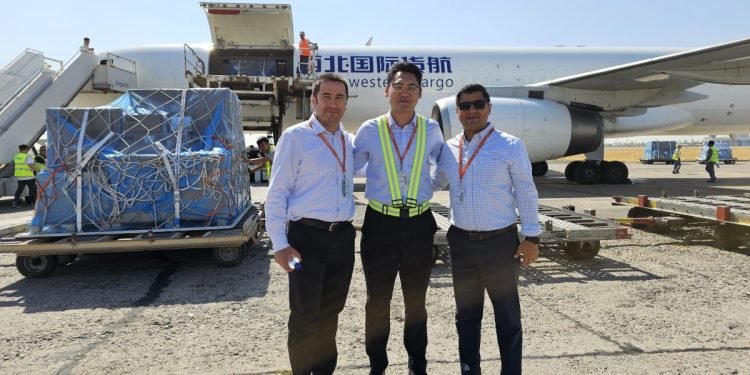In response to the evolving challenges in global supply chains, CargoPoint, a Tashkent-based freight forwarder, has introduced an innovative air freight route linking China to Europe through Tashkent, Uzbekistan. This strategic corridor aims to enhance cargo movement efficiency between Asia and Europe, offering businesses reduced transit times and reliable capacity, thereby providing an alternative to congested routes in other regions.
Addressing Global Trade Dynamics
The air cargo market between China and Europe has demonstrated resilience amid fluctuating demand and capacity constraints. According to the International Air Transport Association (IATA), there was a 14.6% year-over-year increase in air cargo flow between China and Europe in August 2024. Additionally, WorldACD reported that spot rates for air cargo on this route rose by up to 18% in calendar week 36, reaching $4.39 per kilogram, one of the highest levels observed in 2024. These trends reflect a broader market recovery and heightened demand for air cargo capacity following disruptions in maritime shipping and improving global trade.
Strategic Role of Uzbekistan
Uzbekistan’s strategic geographical position, with Tashkent at its core, enables companies to bypass complex geopolitical bottlenecks, such as Russian airspace closures and tensions in the Red Sea and the broader Middle East. This new air corridor effectively shortens delivery times for European and Asian businesses.
CargoPoint’s Contribution
CargoPoint, in collaboration with Turkish Cargo, plays a pivotal role in this logistics landscape. Turkish Cargo operates approximately 25 flights per week, utilizing two daily widebody aircraft, making it the largest capacity provider connecting Tashkent airport to Istanbul and beyond. CargoPoint’s efficient management of its Tashkent hub facilitates seamless connections between China and Europe via Istanbul, thereby revitalizing ancient Silk Road pathways and fostering modern commerce.
This development underscores the importance of strategic logistics solutions in navigating the complexities of global trade, offering businesses enhanced flexibility and efficiency in their supply chain operations.























